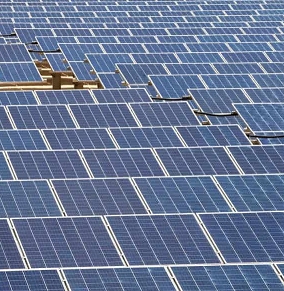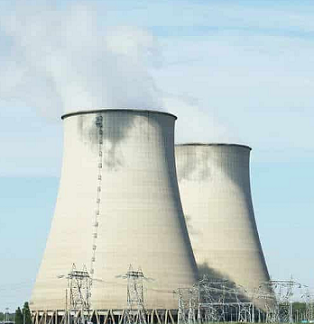Fossil fuel is still the major source of energy. However, with every passing year, the global climate crisis seems to get worse, and the main culprit for climate crisis is fossil fuels. That is why the alternatives to fossil fuel are always getting the limelight so that, in the long run, they can completely make fossil fuel obsolete.
The main alternatives are solar energy and nuclear energy. There are distinct advantages as well as disadvantages of solar energy as well as nuclear energy. The question arises which is better, and that is what we will discuss in this article based on facts.
Outline
ToggleAbout Solar Energy
Solar energy is the power that we get from the sun. The energy from the sunlight is converted into electricity. Solar energy is considered renewable and sustainable energy as there is no dearth of sunshine from which solar energy is derived. In fact, solar energy is also green energy as there is no pollution caused due to it, unlike the energy derived from fossil fuels.
To harness solar energy, you need photovoltaic devices where the energy from sunlight is extracted and converted into electrical energy. There are various solar devices available in the market that have an inbuilt system to store solar energy and use it when required to power the device. The use of solar energy is now extending to powering homes, vehicles, and industrial processes by setting up a solar power plant.
1. Advantages of Solar Energy –
Here are all the advantages of solar energy that point out why it is better than energy generated from fossil fuels.
Pollution-free – Solar energy is green energy, and it does not generate any pollution starting from its generation to transmission process. No harmful gas comes out of a solar power plant, and there is no radioactive material involved.
Durability – A solar cell converts light energy to electrical energy, but there is no drive system involved. Hence, there is no wear and tear, and this enhances the durability of solar cells. As a matter of fact, there is very little maintenance required which justifies its long-lasting lifespan.
Renewable – There is no dearth of sunlight, and you can generate solar energy as long as there is sunlight. Therefore, it falls under the category of renewable energy as it is not limited to fossil fuels. Yes, it is true that you cannot generate solar energy at night or during rainy days, but as soon as the sun shines, you can start generating solar energy as long as you like in order to compensate.
Convenient – To generate solar energy, you need the installation of solar panels, and they are very easy to install. In fact, anyone can set it up on their roofs if they want to generate solar energy for their home. Not just installation is simple and easy, the maintenance is quite low which is why it has the potential to become a household item going forward.
2. Disadvantages of Solar Energy –
The only disadvantage of solar energy is that you cannot install a solar power plant where you do not get ample sunshine throughout the year. Therefore, solar power may not be suitable for certain regions of the world where the sun shines strongly for a few hours and the majority of the day is low sunshine time. Therefore, it comes down to the scalability factor, and there is yet to be a super large solar power plant from where solar energy could be transmitted for a large area just like thermal energy.
3. Environmental Consequences
Solar energy is green energy, and hence, there is apparently no pollution from it. However, the photovoltaic cells generate certain waste products, and if not properly handled, they can impact the people coming in contact as well as the land through which it passes. If properly handled, there are literally no environmental consequences.
4. The Future Potential
The future potential of solar energy is literally endless. It is the best alternative to replace the current energy system. In fact, countries have announced their plans to generate large-scale solar power within the next decades. In fact, you can expect certain countries to fulfill their country’s majority of requirements through solar energy only.
About Nuclear Energy
Nuclear energy is energy extracted from the nucleus of atoms of radioactive materials. Through nuclear reactions, the nuclear energy from the nucleus is released to generate thermal energy. Since thermal energy is released, it is a more viable alternative to the thermal energy from fossil fuels. You can obtain nuclear energy through nuclear fission, fusion, and nuclear decay as well.
There are many who are worried about fatalities that could be caused by nuclear energy. However, the facts and figures show that thermal energy from fossil fuels caused more fatalities. On the contrary, it reduces air pollution by reducing the emission of harmful gases.
1. Advantages of Nuclear Energy –
There are loads of advantages of using nuclear energy which is why bigger countries are opting for nuclear energy to replace thermal energy to meet the energy requirements.
Lower Harmful Emission – While harvesting uranium, there could be certain emissions of harmful gases in the environment. However, in the generation of nuclear energy, there is the least amount of emission as far as harmful gases such as carbon dioxide. Therefore, it is going to solve the climate crisis problem if it is used on a large scale.
Reliable – In comparison to solar energy, nuclear energy is more reliable because sunlight may be absent at times, but there is no such issue with nuclear energy. You can generate nuclear energy all the time as long as uranium is available. As a matter of fact, under extreme weather conditions, when solar energy cannot be generated, nuclear energy works perfectly.
Low Cost – While many think that nuclear energy generation is expensive as uranium is expensive, the notion is wrong. The generation process needs less uranium, and hence, the overall cost of nuclear energy generation is very low. Along with being cost-effective, it is a more efficient way of generating energy with the maximum usage of the available resources.
Scalability – There is a big question mark on the scalability of solar energy, but there is no such issue with nuclear energy. There are countries that have set up nuclear energy plants, and they are transmitting the energy across cities efficiently. Therefore, it is totally ready to meet all energy demands for every country across the globe.
2. Disadvantages of Nuclear Energy –
Radioactive Wastage – The reason why nuclear energy is not green energy is that it involves radioactive materials and wastes. Disposal of these radioactive wastes is very critical as such wastes can wipe out a huge chunk of popularity in minutes if not properly handled and something goes wrong. Instead of dumping in the seas, the waste materials are dumped under sand, and sometimes, they are used for designing weapons.
Radiation – The power reactors in a nuclear power plant are making plutonium, and the element is highly toxic. If not properly handled and if they manage to escape, they can cause extremely radiation-based diseases. In fact, nuclear accidents and aftereffects are not very rare. Any sort of leakage can lead to complicated life-threatening diseases for the population living nearby.
Non-renewable – Unfortunately, nuclear energy is neither green energy nor renewable energy. The availability of uranium for the nuclear reaction is limited. Uranium is only available in a few countries, and their deposits will eventually run out like fossil fuels.
Risk For Environment – The best way to describe nuclear energy production is risky. Even though the companies do their utmost to minimize and even eliminate all risk factors, accidents can happen at any time. This puts the entire nation at risk when you time about nuclear bombs dropped in Japan. Similarly, nuclear waste is affecting aquatic life significantly, and these wastes take thousands of years to decompose.
Comparing Solar and Nuclear Energy –
1. Time Required For Overall Processing
Setting up a solar power plant is easier and faster than a nuclear power plant. Not just that, extracting solar energy is tremendously faster than nuclear energy. Therefore, solar energy scores over nuclear energy in the overall time requirement. The factor may not seem to be an issue if you think long-term, but the industrialists weigh this factor in order to meet the energy demands of a nation.
2. Cost For Overall Setup
There is no doubt that setting up a solar power plant is less expensive than a nuclear power plant. This is because the requirement for components for a solar power plant is relatively fewer. Moreover, there is no need for source materials like uranium which is available only in a few countries. As a rough estimation, a solar power plant will cost nearly 1/10th of a nuclear power plant.
3. Total Annual Energy Production
More than the time, it is the amount of energy a power plant can produce helps in meeting the energy demands. A nuclear power plant can operate 24 hours a day, and hence, it produces more total annual energy. On the contrary, a solar power plant operates only when the sun is out, and this means it is effective and operational for 30% of the time in a day. Naturally, solar energy lacks which is why countries are giving preference to nuclear energy through solar power plants are not uncommon.
Solar Power or Nuclear Power – Which Is A Better Energy Solution?
From the current standpoint, both solar energy and nuclear energy are better alternatives. Considering the global climate crisis, solar energy is clearly a winner. However, the total annual energy production of the same size as a solar power plant is less in comparison to a nuclear power plant. However, nuclear energy is not renewable, and there are various risks associated. Therefore, nuclear energy is not a long-term solution though currently, both nuclear and solar power plants should go hand in hand to meet the demands of the nation. But, solar energy is a far better choice than nuclear energy.



